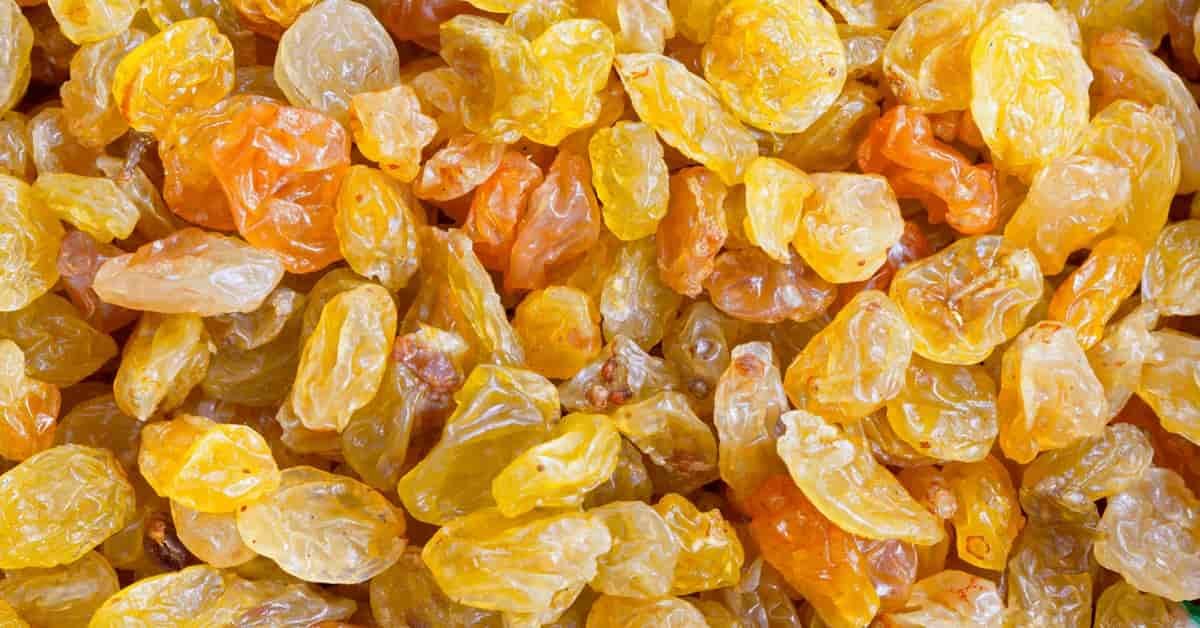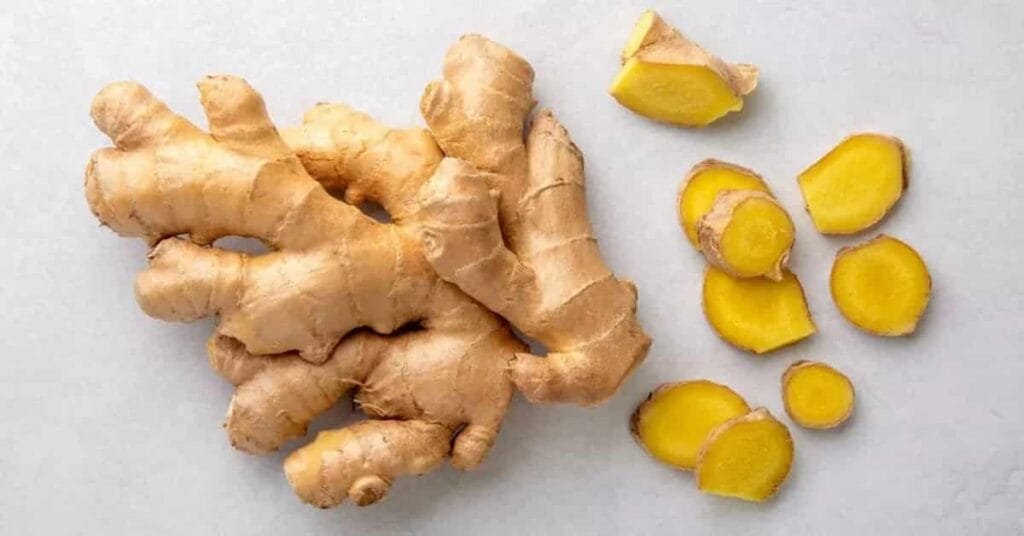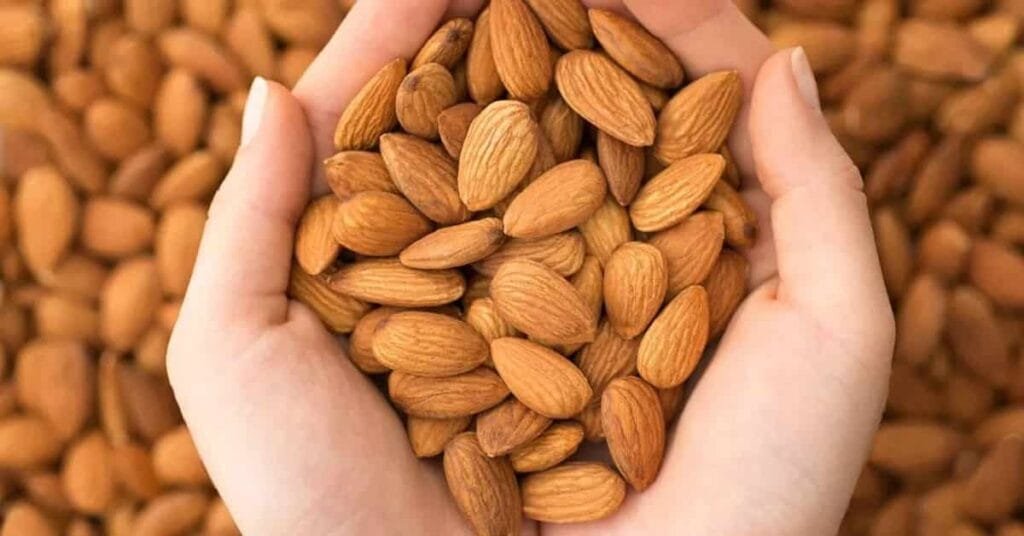Raisins, which are dried grapes, are a popular snack and ingredient known for their sweetness and nutritional benefits. They are not only convenient to eat but also pack a powerful punch of nutrients and health-promoting compounds. In this comprehensive overview, we will explore the nutritional value of raisins and the array of health benefits they offer.
Nutritional Profile of Raisins (per 100 grams)
Here’s a detailed breakdown of the nutritional content of raisins:
- Calories: 299
- Water: 15%
Macronutrients:
- Carbohydrates: 79.18 g
- Sugars: 59.19 g
- Dietary Fiber: 3.7 g
- Protein: 3.07 g
- Fat: 0.46 g
Vitamins:
- Vitamin C: 1.6 mg (about 2% of the Daily Value)
- Vitamin B6: 0.16 mg (about 8% of the Daily Value)
- Niacin (B3): 0.59 mg (about 4% of the Daily Value)
- Riboflavin (B2): 0.11 mg (about 5% of the Daily Value)
- Vitamin K: 3.5 µg (about 3% of the Daily Value)
Minerals:
- Potassium: 749 mg (about 16% of the Daily Value)
- Calcium: 50 mg (about 5% of the Daily Value)
- Iron: 1.88 mg (about 10% of the Daily Value)
- Magnesium: 32 mg (about 8% of the Daily Value)
- Copper: 0.19 mg (about 10% of the Daily Value)
- Manganese: 0.3 mg (about 15% of the Daily Value)
Health Benefits of Raisins
- Nutrient-Dense Snack:
- Raisins are concentrated sources of energy and nutrients. They contain a variety of vitamins, minerals, and antioxidants, making them a nutrient-dense option for a quick snack or meal addition, particularly when you need an energy boost.
- Natural Source of Antioxidants:
- Raisins are rich in antioxidants, such as flavonoids and phenolic compounds. These antioxidants help combat oxidative stress, reducing the risk of chronic diseases and protecting cells from damage caused by free radicals.
- Promotes Digestive Health:
- The fiber content in raisins aids digestion by promoting regular bowel movements and preventing constipation. Fiber also supports a healthy gut microbiome, which is crucial for overall digestive health.
- Supports Bone Health:
- Raisins contain several minerals critical for bone health, including calcium and boron. Boron is particularly important for bone development and maintenance and may reduce the risk of osteoporosis.
- Helps Regulate Blood Sugar Levels:
- Despite their natural sweetness, raisins have a low to moderate glycemic index, meaning they do not cause rapid spikes in blood sugar levels. The fiber in raisins can help manage blood sugar levels, making them a suitable snack for individuals with diabetes when eaten in moderation.
- Heart Health:
- The potassium in raisins helps regulate blood pressure, while the antioxidants contribute to heart health by reducing inflammation and oxidative stress. Regular consumption of raisins may also lower levels of LDL cholesterol (bad cholesterol) in the bloodstream.
- Boosts Energy Levels:
- Raisins are a great source of natural sugars (fructose and glucose), making them an excellent food for quick energy. They are often consumed by athletes as a natural alternative to sports drinks for an instant energy boost during workouts.
- May Improve Oral Health:
- Contrary to the belief that dried fruits may contribute to tooth decay, some studies suggest that compounds in raisins, such as oleanolic acid, may help reduce the risk of cavities and gum disease by inhibiting the growth of harmful bacteria in the mouth.
- Supports Immune Function:
- The antioxidants and vitamins found in raisins, particularly vitamin C, can help enhance the immune response, making the body more resilient against infections and illnesses.
- Good for Skin Health:
- The antioxidants in raisins can help improve skin health by protecting skin cells from damage caused by UV rays and pollution. Additionally, the hydration provided by their natural sugar content can help keep the skin moist and supple.
- May Aid in Weight Management:
- While raisins are calorie-dense, their fiber content can promote satiety, helping you feel fuller for longer. Including them in a balanced diet can curb cravings and prevent overeating.
- Versatile Culinary Use:
- Raisins can be added to a myriad of dishes, from salads and cereals to baked goods and savory sauces. Their natural sweetness enhances flavors and provides a nutritious boost to meals.
FAQs about Raisins
Here are some frequently asked questions (FAQs) about raisins:
1. What are raisins?
Raisins are dried grapes, commonly used as a snack, in baked goods, or as a topping in various dishes. They are typically dark brown, but can also be golden or green, depending on the type of grape used.
2. What are the health benefits of raisins?
Raisins offer several health benefits, including:
- Rich in Nutrients: They contain vitamins (like B vitamins) and minerals (such as potassium, iron, and calcium).
- High in Antioxidants: Raisins are rich in antioxidants, which help protect against cell damage.
- Digestive Health: They are a good source of dietary fiber, promoting healthy digestion and regularity.
- Natural Sweetness: A healthy alternative to sugary snacks.
3. How are raisins made?
Raisins are made by drying grapes. This can be done through several methods, including:
- Sun-drying: Grapes are left in the sun to dry naturally.
- Shade-drying: Grapes are dried in shaded areas to preserve color.
- Mechanical drying: Using dehydrators or ovens to expedite the drying process.
4. Can raisins be eaten raw?
Yes, raisins are typically eaten raw as a snack. They can also be added to various dishes like salads, cereals, and baked goods for flavor and texture.
5. Are there different types of raisins?
Yes, there are several types of raisins, including:
- Thompson Seedless: The most common variety, light brown in color.
- Golden Raisins: Made from green grapes that are treated with sulfur dioxide to retain their color.
- Dark or Black Raisins: Usually made from black grapes and have a richer flavor.
- Sultanas: These are similar to golden raisins but usually plumper and juicier.
6. How should raisins be stored?
To keep raisins fresh, they should be stored in an airtight container in a cool, dry place. They can also be kept in the refrigerator to prolong shelf life.
7. Are there any drawbacks to eating raisins?
While raisins are healthy, they are also high in natural sugars and calories. Overconsumption can lead to weight gain or digestive issues in some people. Additionally, those with certain conditions like diabetes should monitor their intake.
8. Can raisins be rehydrated?
Yes, raisins can be rehydrated by soaking them in warm water or other liquids (like juice or alcohol) for about 15-30 minutes. This can be useful for recipes that require plumper raisins.
9. What are some common uses for raisins in cooking and baking?
Raisins are versatile and can be used in:
- Baked Goods: Such as bread, muffins, and cookies.
- Salads: Adding sweetness and texture to green or grain salads.
- Cereal: Added to oatmeal or breakfast cereals.
- Savory Dishes: Incorporated in rice dishes or curries for a hint of sweetness.
10. Can raisins be a part of a balanced diet?
Yes, raisins can be part of a balanced diet when consumed in moderation. They provide essential nutrients and can be a great natural sweetener in various dishes.
Conclusion
Raisins are more than just a sweet snack; they are a nutritious powerhouse packed with vitamins, minerals, antioxidants, and fiber. Their numerous health benefits—including support for digestive health, heart health, and bone health—make them a valuable addition to a balanced diet.
Whether enjoyed on their own, added to salads and oatmeal, incorporated into baked goods, or used in savory dishes, raisins offer versatility and flavor.


